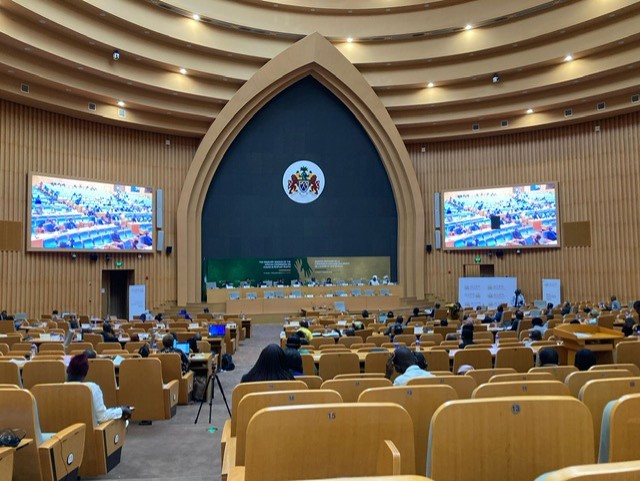
The African Commission Launches the First Regional Instrument to Fight Enforced Disappearances in Africa
Read a Q&A on the EDA Guidelines
REDRESS, Zimbabwe Lawyers for Human Rights, MENA Rights Group, Lawyers for Justice in Libya, and the African Centre for Justice and Peace Studies welcome the launch today of new regional guidelines aimed at supporting African States eradicate the practice of enforced disappearances on the continent.
The Guidelines on the Protection of All Persons from Enforced Disappearances in Africa (EDA Guidelines) were launched during the 73rd Ordinary Session of the African Commission on Human and Peoples’ Rights that is taking place from 20 October to 9 November 2022 in The Gambia.
While enforced disappearances are pervasive throughout the African continent, the existing data does not reflect the full scale of the problem. The UN Working Group on Enforced and Involuntary Disappearances (UNWGEID) has received more than 6,000 enforced disappearance claims from victims in Africa since 1980, but these numbers are believed to be much higher due to states’ denial of the use of this crime, victims’ fear of reporting cases, and a lack of official data. Widespread impunity also remains the norm. As such, the adoption of the EDA Guidelines by the African Commission is a significant step towards preventing enforced disappearances and supporting victims and their families in their search for truth, justice and reparations.
The EDA Guidelines build upon existing legal obligations of African States under the African Charter on Human and Peoples’ Rights, and other international and regional treaties, and soft law instruments, and encourage States to ratify the relevant treaties as a positive and effective measure to both prevent and respond to enforced disappearances on the continent.
The EDA Guidelines address the following key areas around enforced disappearances:
- The context of enforced disappearances in Africa, including the specific groups affected and the circumstances in which the crime is often committed.
- General principles and definitions of enforced disappearances, the continuous nature of the crime, the concept of short-term disappearances, the definition of victims, and the prohibition of discrimination.
- The rights commonly infringed upon as a consequence of an enforced disappearance, such as the right to life, the prohibition of torture and ill-treatment, the right to liberty and security of the person, the right to a fair trial and judicial guarantees, and the right to the truth, among others.
- States’ legal obligations which include refraining from committing enforced disappearances and ensuring its prevention, investigating allegations of enforced disappearance, prosecuting and punishing perpetrators of this crime, and providing redress to victims.
- Steps to implement the EDA Guidelines.
Over the last three years, our organisations supported the work of the African Commission by convening several expert workshops and events, in which many regional and international experts participated. We are grateful for the pro bono support provided by the team at Linklaters led by Charalampos Dimoulis, Emma Kate Cooney and Liberty Brown. We further thank the experts that participated in the workshops that led to the adoption of the EDA Guidelines, including Gabriela Citroni and Aua Balde, members of the UNWGEID; Bernard Duhaime and Houria El-Slami, former members of the UNWGEID; the late Christof Heyns, former member of the UN Human Rights Committee, and Matar Diop and Olivier de Frouville, members of the UN Committee on Enforced Disappearances.
More information about the work our organisations have been conducting on enforced disappearances in Africa can be found on our websites:
https://redress.org/enforced-disappearance-in-africa/
For more information or for an interview, please contact:
- Amir Suliman, ACJPS’ Legal Programme Director, at [email protected]or +256754717100
- Mohamed Elmessiry, Head of Research and Capacity Building at LFJL, at [email protected]or +44 (0)7501 395067
- Eva Sanchis, REDRESS’ Head of Communications, at [email protected]or +44 (0)7857 110076
- Kumbirai Mafunda, Zimbabwe Lawyers for Human Rights’ Communications Officer, at [email protected]or +263 773 855 611
- Inès Osman, MENA Rights Group’s Director, at [email protected].
Photo by Alejandra Vicente/REDRESS
